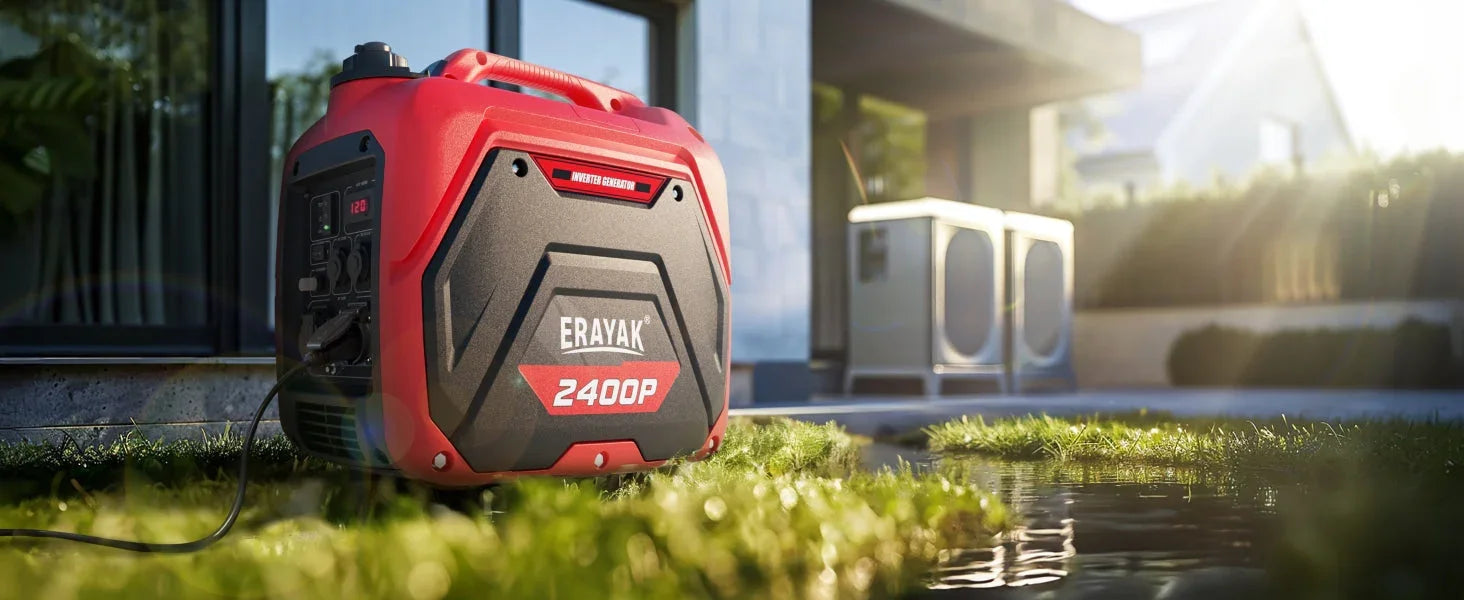Choosing the Right Emergency Generator for You
When the power goes out unexpectedly, having an emergency generator can be a lifesaver. Whether it's due to a natural disaster or a local blackout, a generator ensures that your essential appliances continue to function, keeping your home safe and comfortable. But with so many options available, how do you choose the right one for your needs? In this guide, we'll walk you through everything you need to know about selecting the best emergency generator for home use.
Step 1: Assess Your Power Needs
Before diving into the different types of generators, it’s crucial to assess your power needs. This involves identifying the appliances and systems that are vital during a power outage.
Consider the appliances you can't do without. Common essentials include:
- Refrigerator and freezer to keep food from spoiling
- Lights for visibility and safety
- HVAC systems for heating or cooling
- Medical devices, if applicable
- Charging ports for phones and laptops
Make a list of these appliances and check their wattage. This will give you a rough estimate of the power you'll need from a generator.
Once you have your list, add up the wattages of all the appliances. Keep in mind that some appliances have a starting wattage that's higher than their running wattage. To accommodate this, it's wise to choose a generator with a higher capacity than your calculated total.
Step 2: Understand the Different Types of Generators
Generators come in various types, each with its own pros and cons. Here are the most common ones for home use:
Portable Generators
Portable generators are versatile and can be moved around as needed. They are typically gasoline-powered and are ideal for powering a few essential appliances. They're best suited for short-term use and can be stored away when not in use. However, they can be noisy and require regular maintenance.
Inverter Generators
Inverter generators are a type of portable generator that offers cleaner energy and quieter operation. They're perfect for sensitive electronics like computers and smartphones. While they tend to be more expensive than standard portable generators, their efficiency and reduced noise make them a popular choice.
Standby Generators
Standby generators are permanently installed outside your home and connect directly to your electrical system. They automatically kick in during a power outage and can power your entire home. Standby generators are more expensive and require professional installation, but they offer the convenience of seamless operation.
Step 3: Choose the Right Fuel Type
The type of fuel your generator uses can impact its performance and maintenance needs.
Gasoline
Gasoline is widely available and easy to store. However, it can be less efficient and has a shorter shelf life compared to other fuels. It's commonly used in portable generators.
Propane
Propane burns cleaner than gasoline and has a longer shelf life. It's available in large tanks that can power your generator for extended periods. Propane generators are a good choice for those looking for a cleaner fuel option.
Diesel
This fuel type offers high efficiency and a long shelf life. Generators powered by it are durable, require little maintenance, and perform reliably under heavy use. The main drawbacks are higher cost and more noise, but the long-term performance often justifies the investment.
Natural Gas
Natural gas generators are connected to your home's gas line, offering a limitless fuel supply. This is a convenient option for standby generators, as it eliminates the need for fuel storage. However, availability can be limited in some areas.
Step 4: Look for Key Features
When choosing the best small home electric generator, there are several features you should look for:
- For convenience, especially in standby generators, an automatic start feature ensures your generator kicks in without manual intervention.
- Generators can be noisy, so consider models with lower decibel ratings if noise is a concern. Inverter generators are generally quieter.
- If you plan to use your generator in different locations, look for models with wheels and handles for easy transport.
- Check the generator's run time on a full tank of fuel to ensure it can sustain power for long periods.
- Make sure the generator has enough outlets to accommodate your essential appliances. Some models come with USB ports for charging electronics.
Step 5: Prioritize Safety and Maintenance
Safety should always be a priority when operating a generator. Here are some tips to ensure safe use:
- Placement: Always operate generators outdoors and away from windows and doors to prevent carbon monoxide buildup.
- Ventilation: Ensure adequate ventilation to avoid overheating.
- Regular Maintenance: Follow the manufacturer's maintenance schedule to keep your generator in good working condition.
- Fuel Storage: Store fuel safely in approved containers and away from living areas.
Step 6: Find the Right Balance for Your Needs
Choosing the right emergency generator involves balancing your power needs with your budget and preferences. Consider the types, fuel options, and features that align with your requirements. By taking the time to research and assess your needs, you can ensure you select a generator that will keep your home safe and functional during an emergency.
Final Thoughts
In conclusion, having the right generator for home use provides peace of mind and security during unexpected power outages. Whether you opt for a portable generator for occasional use or a standby generator for whole-house coverage, the key is to choose a model that meets your specific needs and ensures reliable performance when you need it most.







